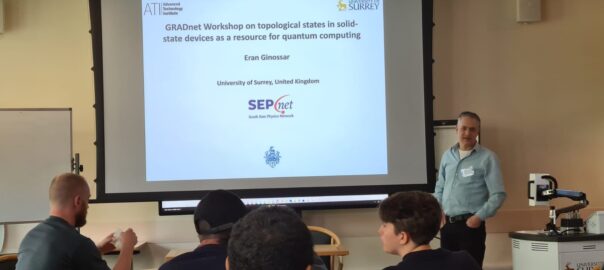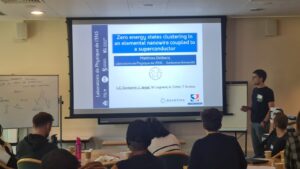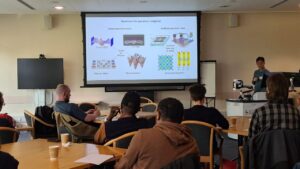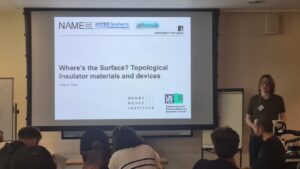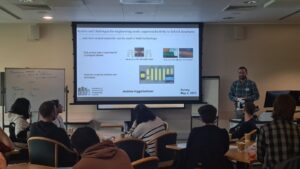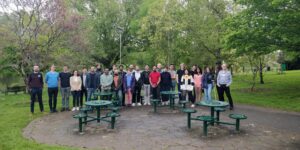The Topological states in solid-state devices as a resource for quantum computing workshop is taking place on 4-5 May 2023 in Oak Suite 1 & 2, Stag Hill Campus, University of Surrey, Guildford, Surrey. This workshop is in collaboration with the University of Surrey and Imperial College London and funded by SEPnet.
Dr Malcom Connolly, Imperial College London and Dr Eran Ginossar, University of Surrey will be hosting a dinner for the invited speakers on 3 May in central London. Malcom will be giving a tour of his laboratory the following morning and all the speakers will join the student delegates at lunchtime in Guildford.
The 2-day event will include the following talks and workshop dinner for both invited speakers and student delegates:
Thursday, 4 May:
- Jaewoo Joo & Eran Ginossar: Ice breaker followed by Introductory talks
- Steven Simon: Topologically Ordered Matter and Why You Should Be Interested
- Andrew Higginbotham: Routes and challenges for engineering exotic superconductivity in hybrid structures
- Kristof Moors: Modelling topological material-based hybrid devices for quantum applications
- Craig Knox: Where’s the surface? Topological Insulator materials and devices
- Erwann Bocquillon: Microwave transport in HgTe topological insulators
Friday, 5 May
- Eytan Grosfeld: Signatures of Andreev and Majorana Excitations in Hybrid Superconducting Circuits
- Guanzhong Wang: Minimal Kitaev chains using coupled quantum dots in nanowires
- Delegates 2-minute presentations
- Beatriz Perez: Engineering topological phases with classical and quantum light
- Mathieu Delbecq: Zero energy states clustering in an elemental nanowire coupled to a superconductor
- Malcolm Connolly and Eran Ginossar: Research themes at ICL and Surrey
Thank you to Dr Eran Ginossar, University of Surrey and Dr Malcolm Connolly, Imperial College London for organising such a comprehensive programme on behalf of GRADnet.

